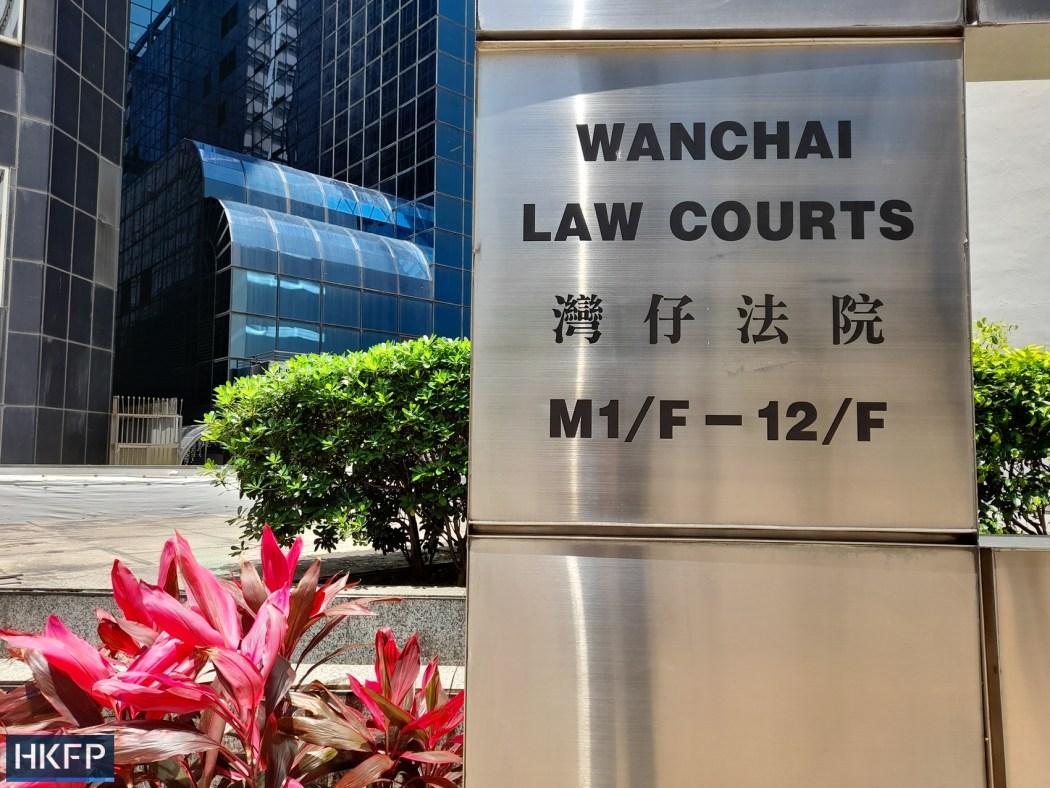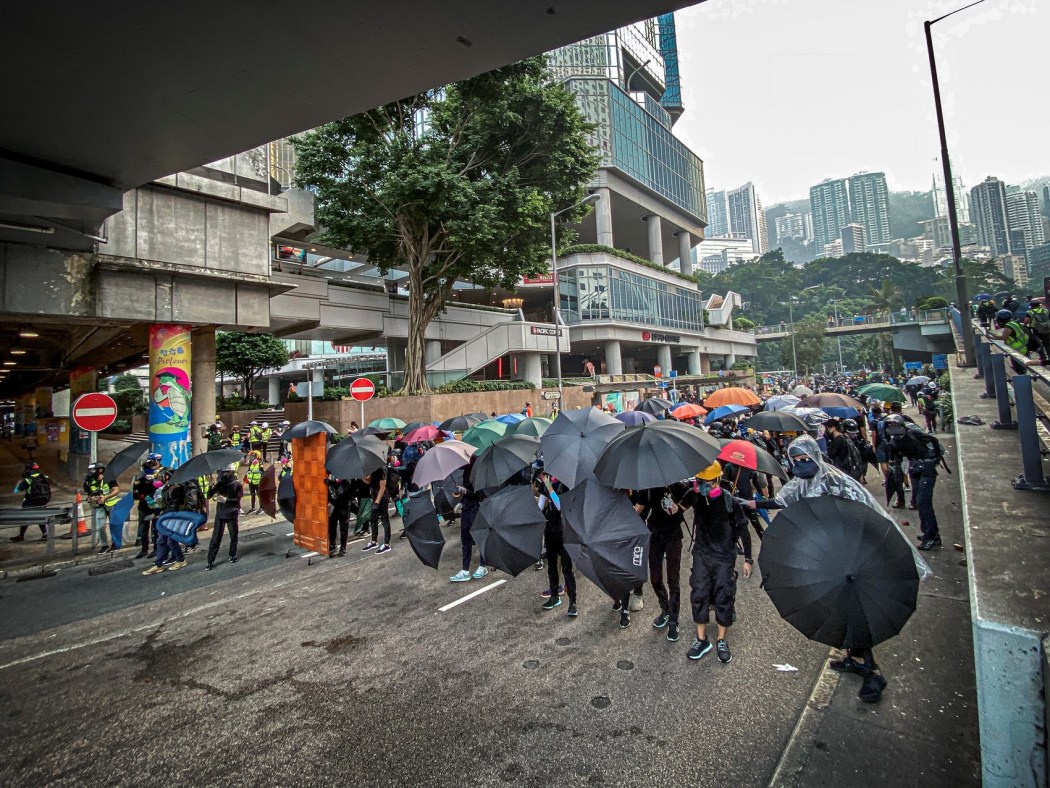Nine Hong Kong protesters have been sentenced to between 28 and 50 months in prison after pleading guilty to or being convicted of participating in a riot in September 2019. When meting out their punishments, the judge said the pro-democracy protesters “had in fact restricted” the freedom of people in Hong Kong.

Leung Tak-wong, Tang Chung-shing, Chiu Kwong-wa, Lau Wing-kin, Lam Tsui-man, Lau Yin-chiu, Yeung Chi-ho, Lam Chi-ho and Chu Kiu-chun appeared in front of Judge Ernest Lin at District Court on Friday.
They were all charged with participating in a riot on Queensway, a major road in Admiralty, on September 29, 2019. Pro-democracy protesters had organised an unauthorised “global anti-totalitarianism march” on that day and violent clashes broke out between them and the police.
Four of the defendants – Tang, Lam Tsui-man, Lau Yin-chiu and Lam Chi-ho – pleaded not guilty, but were convicted on Tuesday. The rest entered guilty pleas.
According to the judge, the riot began when around 200 to 500 protesters started to block traffic and hurl petrol bombs, bricks and other objects at the Central Government Offices at around 4 p.m. that day. All of the defendants were arrested when the police started dispersing the crowd and protesters started to retreat towards Wan Chai via Queensway.
‘A form of autocracy’
Lin said while there was no evidence of a main organiser or detailed planning behind the riot, it had followed a pattern of incidents that had begun in June 2019, where “mentors of teenagers, key opinion leaders and politicians who claimed themselves to be representatives of the public’s opinion incited the masses… with abstract political demands, without their own presence.”
The judge added that the riot was not “completely unplanned” as there were people distributing “expensive” gas masks and other gear, and protesters had acted together to resist the police.

Lin said the incident had brought transport to a halt, obstructed businesses and caused public nuisance in the heart of Hong Kong Island.
The judge added that the greatest loss that arose from the riot was to the harmony and mutual trust among Hongkongers, as well as the city’s international image, as it deepened the divide in society.
“What the protesters claimed to be freedom and democracy became a form of autocracy,” Lin said, adding that “Hong Kong people’s freedom had in fact been restricted by these protesters who claimed to be fighting for liberty.”
Sentencing considerations
Before handing down the sentences, Lin specifically mentioned the mitigation letter written by Leung Tak-wong.
“It represented what many young people did when they were under the influence of other people and lacked the ability to analyse objective facts,” Lin said.
The defendant wrote that his participation in the march was “under the effect of social atmosphere and others’ opinions” and he had realised that he should not seek to achieve his ideals with illegal means.
The judge added that “violating the law of righteousness” was only acceptable in “societies that are extremely suppressive and tyrannical,” where there was no other option. Hong Kong was “not yet at such a stage,” Lin said.

Lin set the sentencing starting point for all defendants at 48 months.
He jailed Leung for 30 months, Chu Kwong-wa for 38 months, Lau Wing-kin for 32 months, Yeung for 28 months and Chu Kiu-chun for 32 months after taking into account their guilty pleas, ages and backgrounds.
As for those convicted after trial, Lin sentenced Tang to 46 months in prison, both Lam Tsui-man and Lam Chi-ho to 48 months in jail and Lau Yin-chiu to 50 months of imprisonment.
The judge said he took away two months of jail time for Tang after considering his outstanding performance in sports and the “lifetime scar” the case would have left on him.
Meanwhile, Lin said he set a two month higher sentencing starting point for Lau Yin-chiu because there was evidence that the defendant had actively participated the riot for at least 15 minutes, meaning “his criminal responsibility is heavier than others.”
Support HKFP | Policies & Ethics | Error/typo? | Contact Us | Newsletter | Transparency & Annual Report | Apps
Help safeguard press freedom & keep HKFP free for all readers by supporting our team

LATEST FROM HKFP
HKFP has an impartial stance, transparent funding, and balanced coverage guided by an Ethics Code and Corrections Policy.
Support press freedom & help us surpass 1,000 monthly Patrons: 100% independent, governed by an ethics code & not-for-profit.










